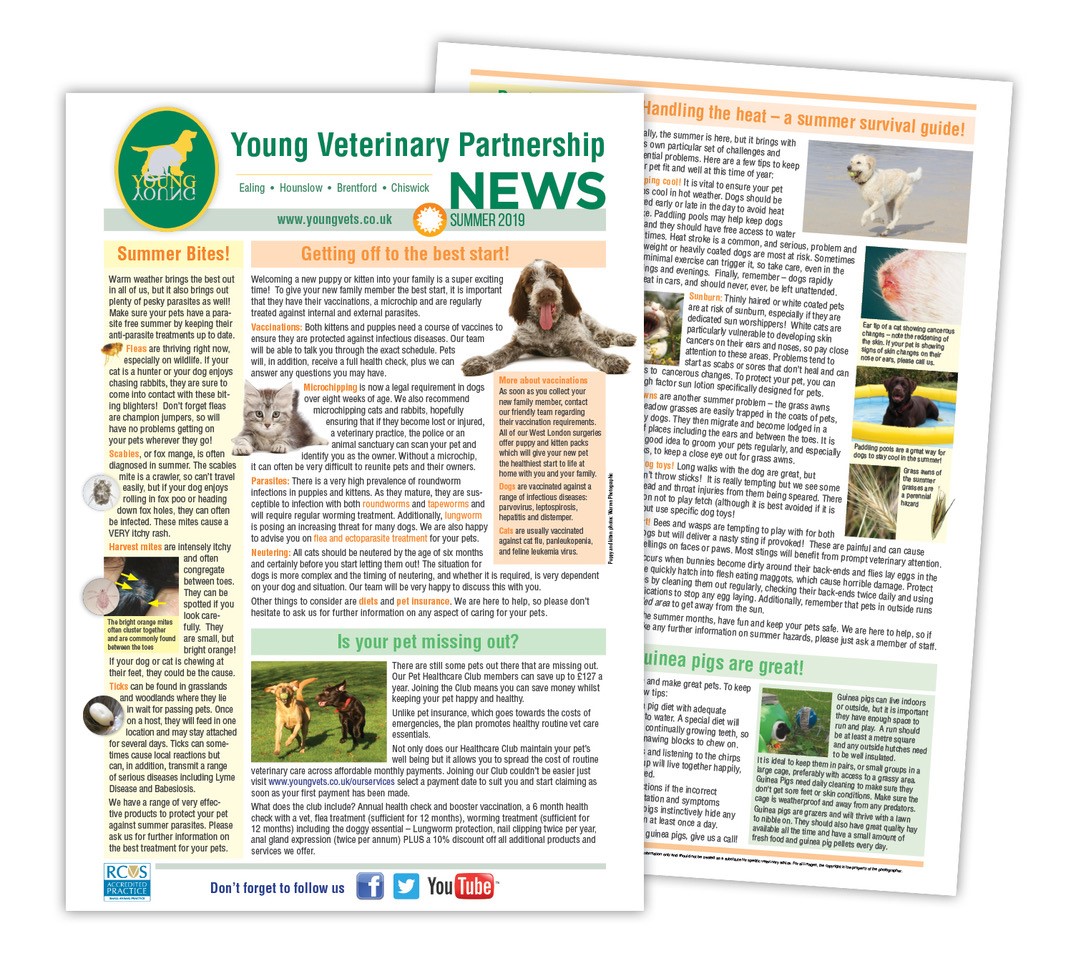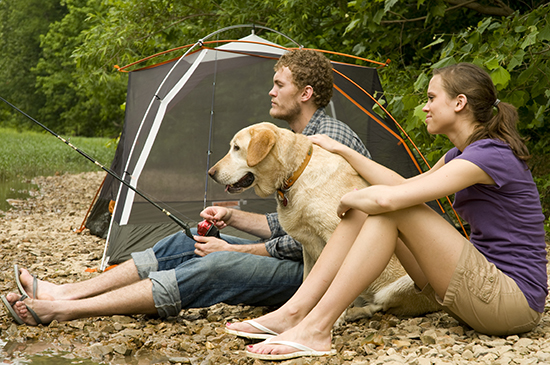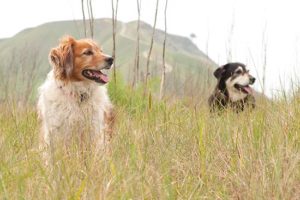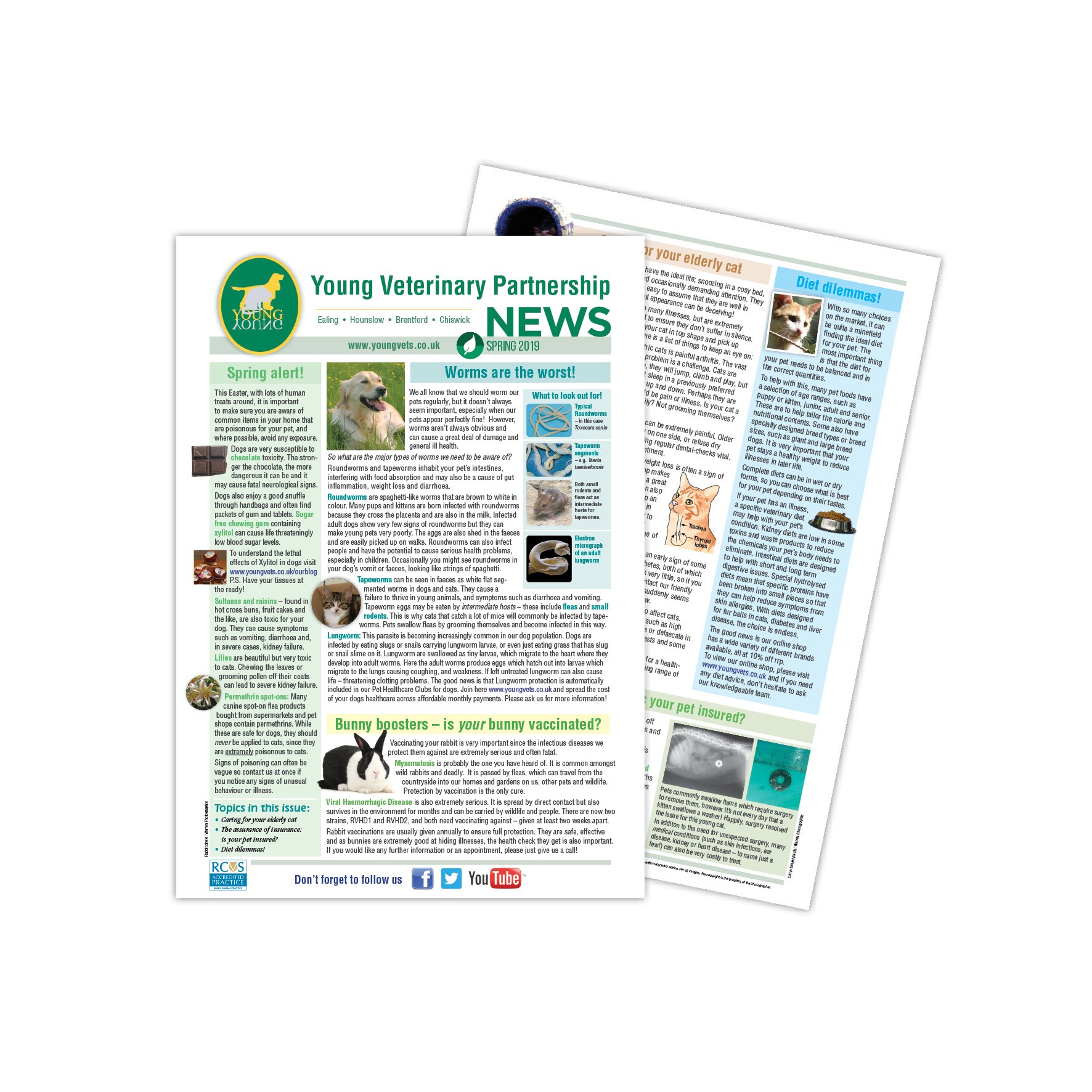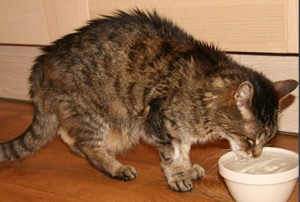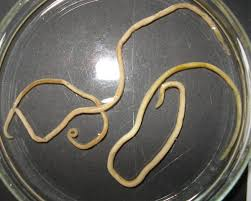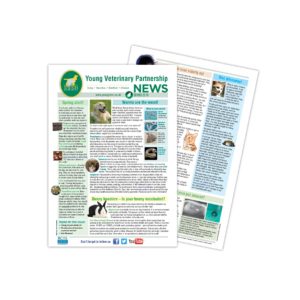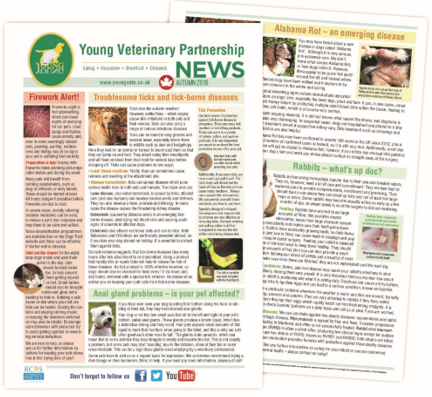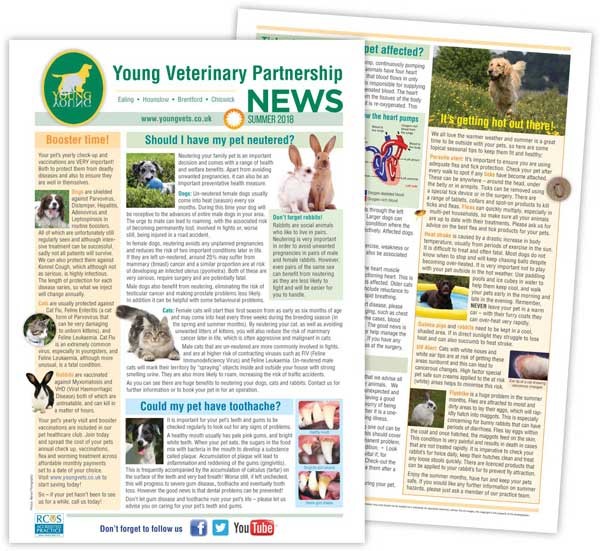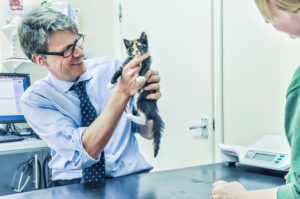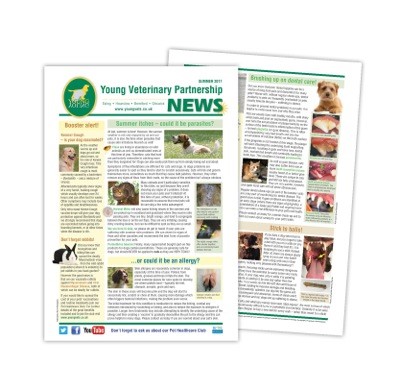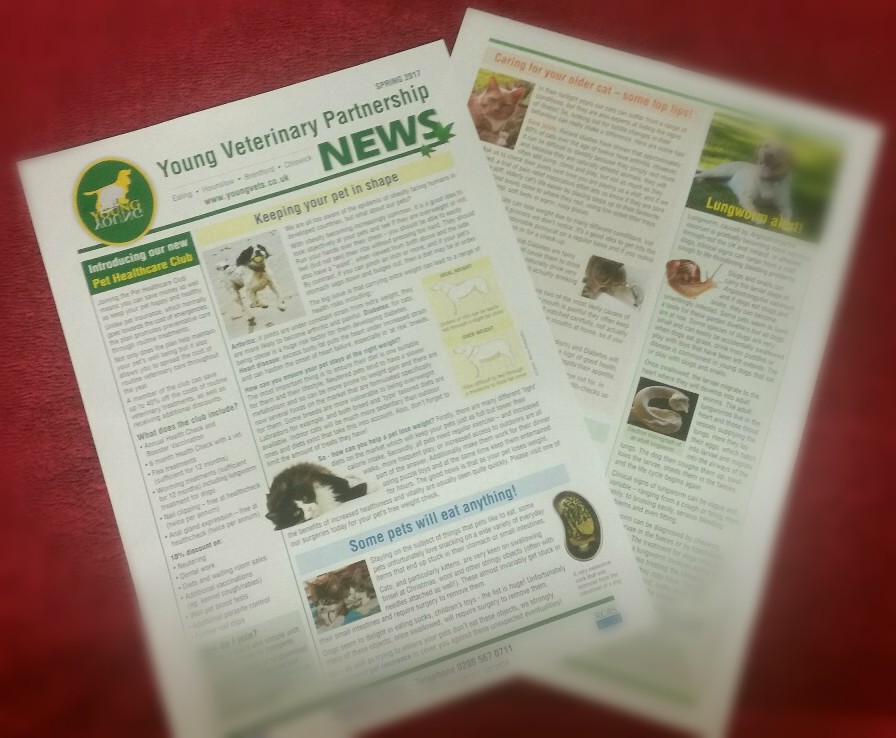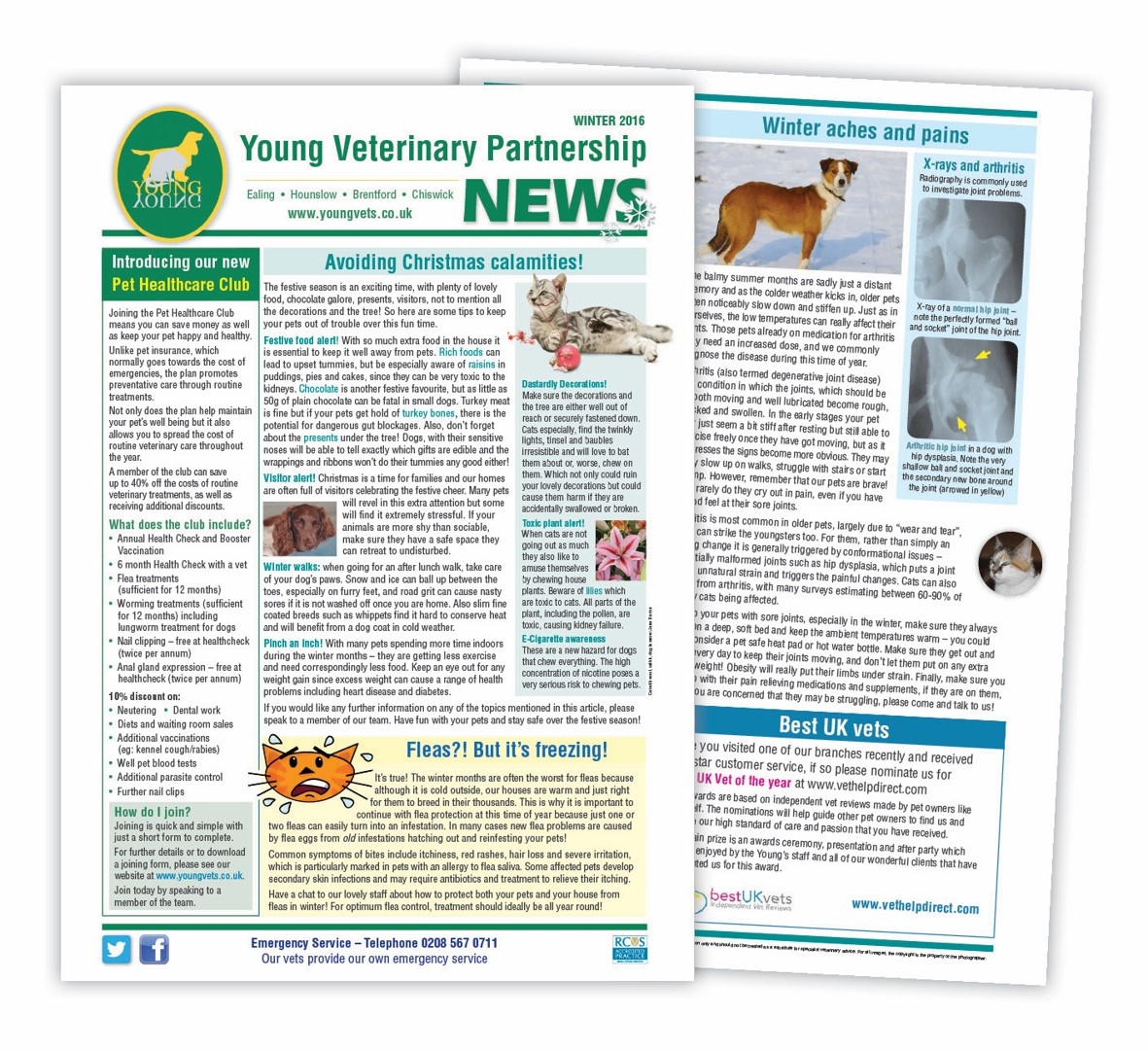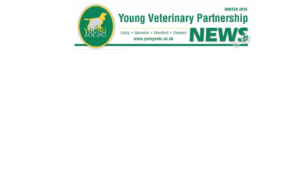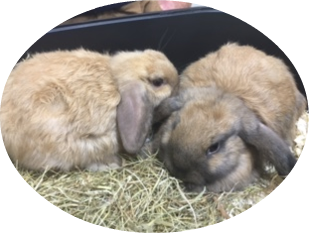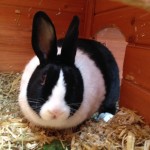Grass awns – a summer problem to watch out for.
A summer problem – the grass awns of the meadow grasses are easily trapped in the coats of pets, especially dogs. Understand more about the damage these can cause in your pet. Also included in our Summer News – Stick to dog toys! Most vets and nurses have seen stick injuries to dogs, understand the safety of using a dog toy rather than a stick.
Dental disease is painful – Could your pet be suffering?
Dental disease is painful, causes tooth loss, and infections can spread throughout the body – potentially causing significant organ damage. Our Summer News explains the signs to watch out for in your pets. The good news is that if gum problems are identified at an early stage, a combination of a scale and polish and ongoing home care can make a real difference to your pet’s oral health.
Keeping cool!
It is vital to ensure your pet keeps cool in hot weather. From sunburn and heatstroke, to flystrike our Summer News offers some top advice on how to keep your pet cool this Summer 2019!
We hope you enjoying reading our Summer Newsletter. If you need any further advice don’t hesitate to contact our knowledgeable team for further advice.
Have you given us a ‘like’ yet – if not, visit our Facebook page here. You can also Tweet at us and subscribe to our You Tube channel for lots of pet care videos.

